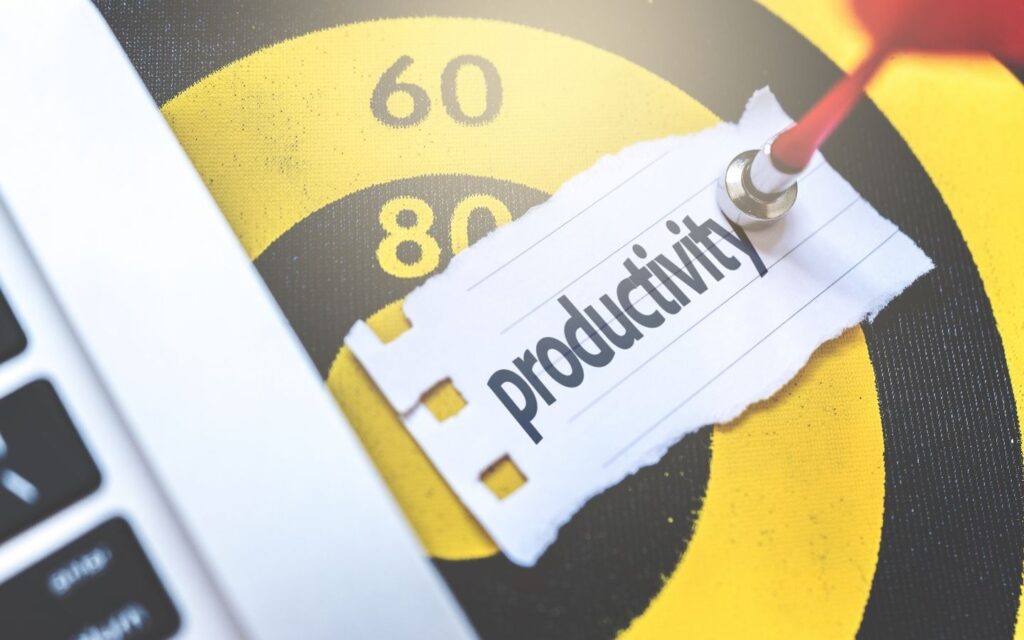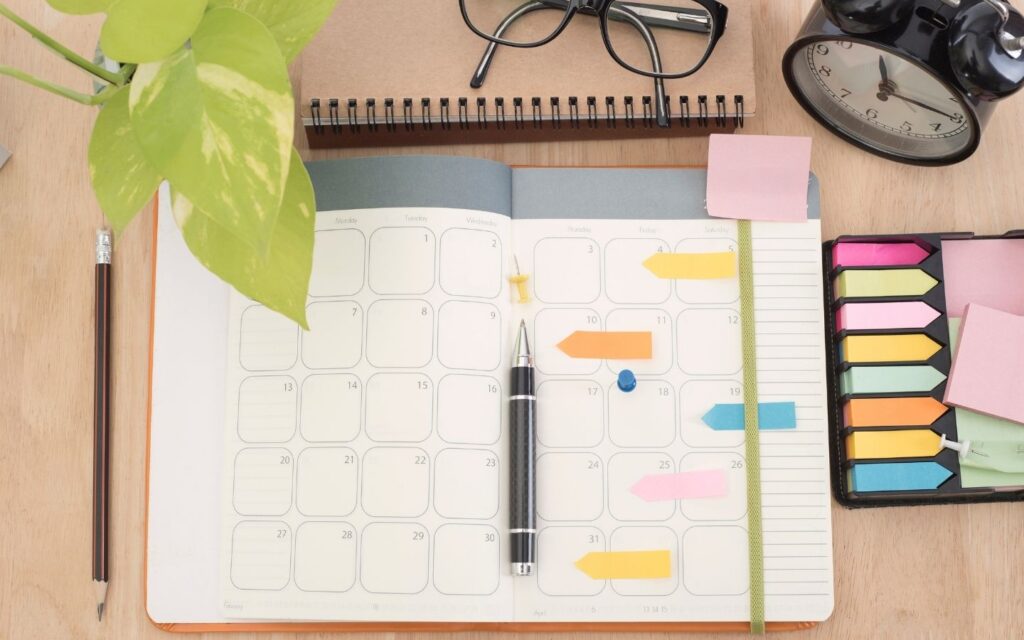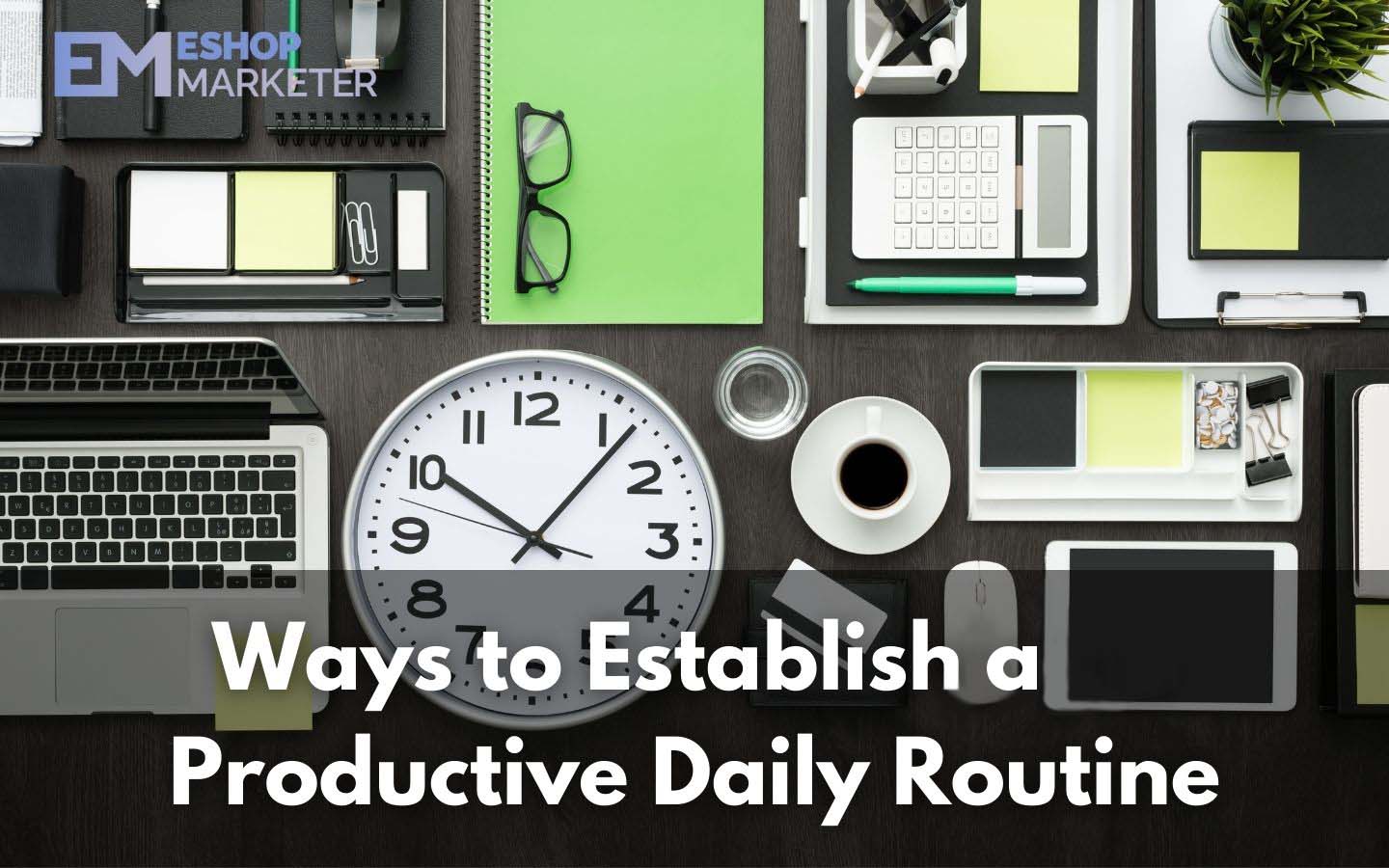It is more complicated than ever to focus on everyday activities and be productive these days. Simply put, there is far too much going on around us. Staying focused is difficult with constant social media notifications, piles of emails, and the latest must-watch material on various streaming media providers. But that doesn’t mean it’s impossible to keep up a productive daily routine.
You may use several easy methods to reclaim control of your day and complete all of your tasks. Of course, you must commit to sticking to a schedule every day.

Find Your Ideal Work Schedule
Before deciding how to make the most of your day, you must first grasp how your physiological and personal work approach influences your productivity.
For instance, if you are a morning person, it may be preferable to prioritize your most essential activities at the top of your daily calendar. Leaving those tasks till the end of the day, on the other hand, would be a mess.
To determine your ideal work schedule, you must first gather some data. Begin by monitoring your existing work patterns (whatever they are) for 2 to 3 weeks. Take notice of the hours of the day when you get the most done, and keep track of any outside distractions that may be conflicting with your work. The goal is to identify when you are at your natural energy peak and filter out extraneous variables acting against you.
Schedule Your Productive Hours
Once you’ve determined what periods of the day are most productive for you, the next step to creating your schedule is to block off that period and reserve it for your most valuable work – by blocking off, I mean you must arrange for those times to be distraction-free and completely dedicated to working.
You must establish an atmosphere where you can focus on the tasks at hand and ensure that you only have the tools necessary to perform those activities. Then, each day, you may plan your most essential tasks into those periods and be pretty confident that you will do them all.
Plan Appropriate Break Times
Periodic breaks are the only thing that should be allowed to disrupt your most productive time. As odd as it may seem, we are most productive when we work in sprints.
The best thing is that this applies even during your non-productive hours. That is, you will not be squandering time before and after your peak production hours. And, while you won’t be as efficient as you previously were, you’ll still get more accomplished than before.
Schedule Availability in the Shortest Possible Time Frames

The issue with everything we’ve discussed so far is that you won’t be operating in a vacuum. That means colleagues, family members, and others will do all in their power to disrupt your days and undermine your productivity.
You’ll need to arrange time in your day to deal with things like phone calls, face-to-face talks, and email communication to accommodate this.
Set aside specific times to complete such activities and notify everyone around you that you will not be available at any other time. By doing so, you avoid many of the distractions that you would then have to deal with. You don’t have to feel terrible about ignoring calls and emails as they come in—or sending them straight to voicemail or an auto-reply if you notify them ahead of time about your availability periods.
Avoid Multitasking
Even if you feel you are an all-star multitasker, I have bad news for you: you are not. The more you attempt, the less effective you will become. Furthermore, you are likely to increase the number of faults in your work and waste even more time cleaning up your mess.
The message here is apparent in terms of the daily schedule. It would help if you strived to find a space in your calendar for every required activity that you are aware of and avoid the urge to cram unplanned chores in there as well.


